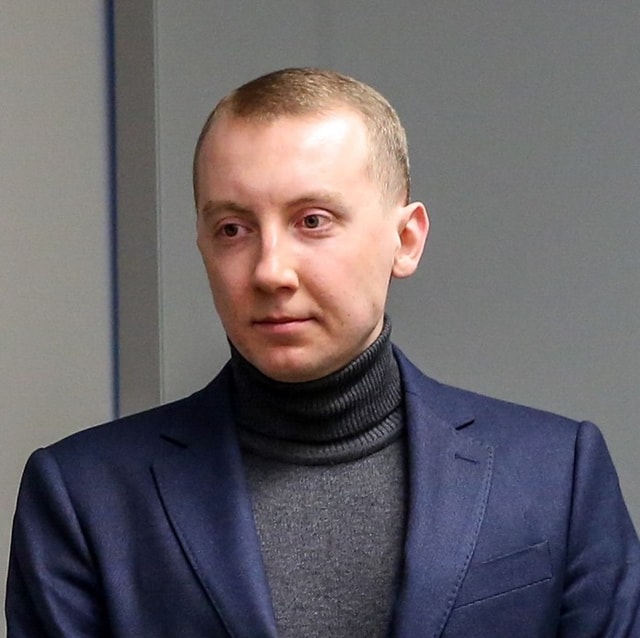Stanislav Aseyev: Russia's bluff of the century. Will there be a war?

Editor's Note: This op-ed was published in Ukrainian by RFE/RL. The Kyiv Independent has translated it and is republishing it with permission. The opinions expressed in the op-ed section are those of the authors.
Joseph Stalin made a huge mistake when he didn’t believe Soviet intelligence on Adolf Hitler's preparations to attack the USSR. Whether it was because of the warm diplomatic and economic relations with the Reich, or because of his pride in being the leader of a "great country," Stalin considered all evidence of the attack to be misinformation and provocation. As a result, the USSR was unprepared for war with Nazi Germany.
Could this mistake be repeated by Ukraine, when the threat of Russian invasion along the entire border (including Belarus) is perceived by the Ukrainian authorities through the paradigm of "everything is fine?"
Let’s try to put emotions aside and list the arguments that point to the fact that the Kremlin is bluffing.
Why the threat of war is most likely a bluff
- The military factor.
Western intelligence agencies and their Ukrainian counterparts agree on one thing: The number of Russian forces gathered along Ukraine's borders is not enough to capture even the part of the country that is east of the Dnipro River. Up to 120,000 Russian troops are currently stationed near Ukraine's borders by various estimates, while at least half a million are needed to attack such a territory.
These are purely geographical calculations, without taking into account the resistance of the Ukrainian army and the losses, which are always greater for the attacker than the defender.
One must also remember Ukraine’s territorial defense units, the core of which are seasoned veterans of the war in Donbas.
There is also the problem of holding the occupied territories. In this sense, the opinion of notorious former FSB agent and militant Igor Girkin is interesting. He said in a recent interview that to keep a territory as large as Ukraine, one would need ten internal security and police officers for every regular combat soldier needed to invade.
In other words, even with a 120,000-strong Russian army, one would need a mammoth law enforcement machine to hold occupied cities, support the occupation regime, and suppress any underground liberation movements. Currently, Russia does not have the necessary resources for this.
- What is the ultimate goal?
It does not exist. There is simply no goal behind a full-scale invasion. Even if Russia occupies Kyiv and captures a number of regional capitals before that – it will be just the beginning. Russia would have to turn these cities into 1990s Grozny, meaning into ruins.
What can Russia do with, for example, Ternopil, Lutsk, Lviv, Khmelnytskyi, where there is not a single whiff of the "Russian world" concept?
At the same time, Russia wouldn’t even be able to hold fake elections of pro-occupation leaders in Kyiv, like it did in Donetsk or Luhansk. They would have to be more open and simply appoint “Gauleiters”, a name for Nazi occupation officials in the 1940s.
- “Chechnya”
Oddly enough, this is one of the most important factors, but which everyone only noticed after a comparison by British Prime Minister Boris Johnson. Indeed, Putin should remember better than most how the first Chechen war turned out for Russia, and understand what it means to enter a second Chechnya, but one the size of Ukraine.
Such operations are never carried out without an in-depth analysis of local moods, which, as any sociological research will show, would guarantee another Chechnya for the Kremlin.
- Economic crisis in Russia
Even at present, one can already see a sharp decline in the value of Russia’s assets and currency. In the event of major sanctions, such as disabling the SWIFT transaction system or blocking Nord Stream 2, Russia will be faced with an economic catastrophe, exacerbated by the colossal costs of the war itself.
- Internal (social and political) crisis in Russia
To the first four factors we can add the dissatisfied business elites who will lose money because of Putin’s ephemeral ideas, as well as the thousands of coffins that will bring grief to Russian families. This could provoke social tension across Russia.
- Destruction of the fake "Russian world" narrative about protecting the Russian-speaking population
When Russian-speaking citizens of Ukraine stand up to fight the Russian Federation’s troops, it will be extremely difficult to explain why Russians are dying in Ukraine. Hitler did not dare to occupy Switzerland, not least because Swiss Germans were ready to shoot at the Wehrmacht from every mountain, which would harm the idea of the "Aryan race."
What can happen?
So what are the things Russia might actually do in the near future?
- Recognition of the Luhansk and Donetsk “republics”
Currently, Russia uses this option as another way to pressure the West: With the help of Russia’s Communist Party, the Kremlin pretends to be ready to consider this scenario in the Duma.
In this case, Russia will unequivocally recognize the territorial claims of the fake “republics” as the entirety of Donetsk and Luhansk oblasts, and will try to advance towards Mariupol and Kramatorsk. However, this scenario will mean Russia’s complete withdrawal from the Minsk and Normandy processes, again without reaching its ultimate goal to influence Ukrainian politics in the future through its artificial formations. In effect, their recognition will leave Russia with only military means to influence Ukraine, which is unlikely.
- Nuclear weapon deployment in Belarus
Russian Foreign Minister Sergey Lavrov has repeatedly hinted at the hidden annexation and militarization of Belarus, and the transfer of some Russian troops to Cuba and Venezuela. Given the global context of the NATO-Russia confrontation, this is a plausible option.
- Further buildup of troops to Ukraine’s borders without an offensive
This will allow Russia to keep tensions high in the region and bargain with the West. Let us not forget that Putin sees NATO as his only real enemy, which has approached the western borders of the Russian Federation. By this logic, the accumulation of Russian troops in a western direction becomes clear.
- Destabilization of Ukraine from within
Destabilization of Ukraine through cyber attacks, systematic bomb threats in public places, riots in Kyiv – against the backdrop of an invasion threat, this would provoke public hysteria and hurt Ukraine’s economy.
Is a compromise possible?
Any war ends with peace, and a hybrid war is no exception. However, there is a paradox in the fact that Russia has created a situation in which a possible compromise with NATO and the EU is now going to be based on returning to the status quo. Russia will demand NATO’s naval withdrawal from the Mediterranean and Black Sea regions, and, potentially, the withdrawal of the forces the U.S. is about to deploy to Eastern Europe to reinforce its contingent.
The Russian strategy has in fact scored an own goal, having found itself facing not a frightened West, but an adversary at Russia’s border that has just grown even stronger.
However, there is a giant catch.
If Russia’s activities are nothing but bluff, why is the West demonstrating such a serious reaction? Why did the CIA chief visit Moscow? Why does Blinken have meetings with Lavrov, while Biden spends half an hour talking about the threat of Russian invasion of Ukraine? Why is one of the world’s best intelligence agencies serious about saying on Dec. 20 that offensive action might be launched as soon as on Christmas Day, which was five days away at the time? After all, why are the U.S., Britain, Germany and Australia evacuating the families of their embassy personnel?
There can only be one answer, because it is unlikely that the West’s best analytic capabilities are incapable of delivering real estimates of risks.
That answer is that this situation is being smartly used by the West to justify the increase of its presence on the bloc’s eastern borders. In other words, the West is acting on the principle "you threatened – we believed."
In this situation, NATO is using the Russian threat as a great excuse to increase and justify its presence in Eastern Europe, without further explaining their position on any further expansion to the east.
Russia is testing the diplomatic nerves of the West by doing the same: legalizing Belarus’ militarization and testing various methods of destabilization within Ukraine.
At the same time, the Kremlin is detecting its real enemies (such as Britain) and latent allies (such as Germany) in Europe. The only question is: How can Ukraine take advantage of Moscow’s bluff of the century?
What can Ukraine do?
The well-known phrase "if you want peace – prepare for war" is what Ukraine should do.
This principle used to be understood literally: To come to peace, one must physically defeat the enemy.
Everything is different in hybrid wars: A bluff in the form of an intention to attack differs from a real attack only in the sense that it will not happen.
Everything else – the gathering of troops, the militaristic propaganda, even the withdrawal of embassy staff or the severance of diplomatic relations – must take place for real.
The task of the fake narrative is to convince that the "original," or the invasion itself, is possible.
How can we protect ourselves from this?
Only by convincing the enemy that we believe that the invasion will happen, even while realizing that this is just a bluff. It’s quite a paradox: One must believe in war for the sake of peace, and only total preparation for the war lowers the enemy’s desire to fight.










